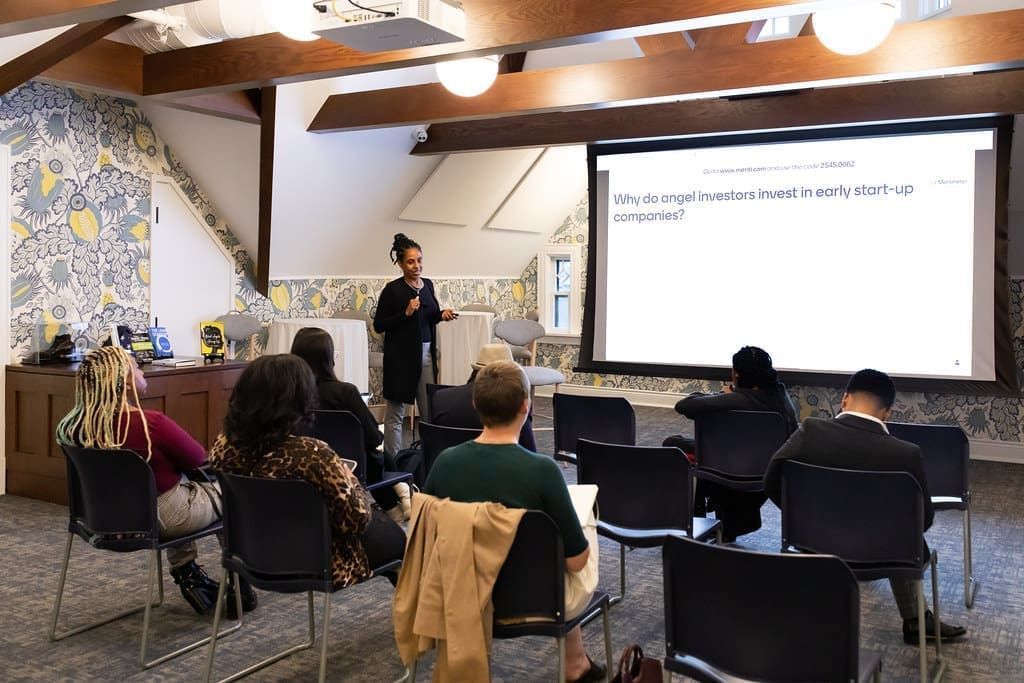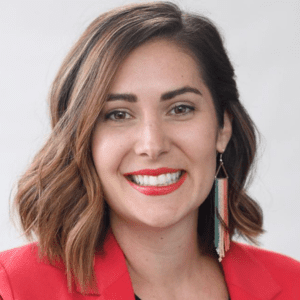Entrepreneurs are the risk assessors who bring valuable products, services and technologies to the marketplace through their startups. In many cases, they create new industries and measurably grow our national economy.
Angel investing, individuals or groups who provide capital in exchange for an interest in the company, has increasingly become an important form of funding for startup companies, estimated at generating $25 billion annually. Angel investments can serve as a valuable resource between a company’s startup funding and when it has grown large enough to scale for additional investment opportunities.
Unfortunately, businesses owned by women and people of color are far behind in accessing capital to fund their startups and smaller businesses in part due to struggles with gender and racial diversity amongst investors.
In response, TechTown Detroit has taken the lead through its Catalyst Angel Program. Launched in October 2021, this program trains women, Black or Latinx investors, founders, executives and high-net-worth individuals on how to become angel investors in the Great Lakes region.

Dawn Batts, TechTown’s director of growth capital, speaks to a group of angel investors during a Catalyst Angel Program workshop at BasBlue, a Detroit-based nonprofit and women’s community space, in October 2022.
The Catalyst Angel Program was made possible in part by a $400,000, three-year grant from the U.S. Economic Development Administration’s (EDA) Office of Innovations & Entrepreneurship. The EDA grant is part of the Build to Scale Program, which aims to accelerate technology entrepreneurship by increasing inclusive access to business support and startup capital. TechTown’s partners for the Catalyst Angel Program include the Angel Capital Association (ACA), the world’s largest professional development organization for accredited angel investors; Ann Arbor Spark (AAS), a nonprofit promoting business and manufacturing development and growth in Ann Arbor; and VentureWell, a national nonprofit that trains and funds STEM innovators and entrepreneurs.
Since its inception, the Catalyst Angel Program has trained more than 120 people toward an eventual goal of 200 new angel investors in Michigan and the Great Lakes region. In addition, the program hopes these individuals will utilize their potential as investors with a prospective goal of supporting 50 projects, totaling $34.7 million in early-stage capital.
“More angel investment by people of color and women will unlock more capital in the community and increase the number of diverse investment perspectives,” says Dawn Batts, TechTown’s director of growth capital. “Most importantly, research has shown that a diverse investment team is more likely to invest in diverse founders.”

Skip Skimms
Skip Simms, who recently retired as the senior vice president of AAS, agrees that the Catalyst Angel Program has performed well since its inception, noting the range of participants hailing from the Detroit and Minneapolis areas.
“Our mission is to recruit, engage and help women and minority high-net-worth households to become investors in startups and early-stage companies,” says Simms, who now serves as a consultant for AAS and manages the Michigan Angel Fund, a division of AAS. “This program has had success and built momentum to accelerate participation among our core prospects. The team is doing a great job.”

Christina Tamer
VentureWell has integrated the Catalyst Angel Program with its Aspire Medtech and Aspire investor development programs. Christina Tamer, VentureWell’s vice president of ventures, emphasizes the networking aspects of angel investor training and angel investing.
“Investors build relationships with each other and entrepreneurs, and they bring back new ideas and insights that can positively impact the entities for which they work,” says Tamer.
Mickayla Rosard, head of platform at Groove Capital, an early-stage investment fund and Minnesota’s most active angel network, has 10 years of investment experience and has procured $138 million into the upper Midwest throughout her career. Rosard joined the Catalyst Angel Program last year as a trainee angel capital investor and has already demonstrated her networking skills, playing a large part in recruiting the program’s 25-person cohort in the Minneapolis area.
While Rosard was familiar with angel investing through her investment career, the Catalyst Angel Program has brought her some new insights.

Mickayla Rosard
“I’m gaining a greater appreciation of the intersection of women empowerment with wealth creation and investments,” Rosard says, adding that she finds the demographics of angel investors are trending younger and changing in composition, with higher net-worth people of all backgrounds. “Interestingly, women don’t talk about their portfolios in the same way as men. So, I am also working to break down social taboos about women not talking about money and investing.” Rosard also finds that the demographics of angel investors are trending younger and changing in composition, with higher net-worth people of all backgrounds.

Patrick Gouhin
As the Catalyst Angel Program approaches its second year, members and partners look forward to continuing its mission of educating emerging angel investors on investing and using their expertise to support startup companies.
“The Catalyst Angel Program is an innovative partnership between the federal government and local ecosystem builders that is serving as a baseline to educate and inform prospective new angel investors, which are the driving force behind the capital formation that is needed to keep innovation flowing in the U.S.,” says Patrick Gouhin, ACA’s chief executive officer. “We hope to fully utilize the available spaces for education funded by the grant while concurrently welcoming those trained in year one into the wonderful world of angel investing thus increasing capital flow to aspiring entrepreneurs.”[vc_separator]Interested in the Catalyst Angel Program? Submit an interest form today! Applicants must be an accredited investor or near accreditation; have two years or less of angel investing experience; reside in Michigan, Illinois, Indiana, Minnesota, Ohio or Wisconsin; self-identify as Black, Latinx and/or a woman; and commit to completing Angel Capital Association courses. The program accepts participants on a rolling basis through Aug. 31, 2024.
